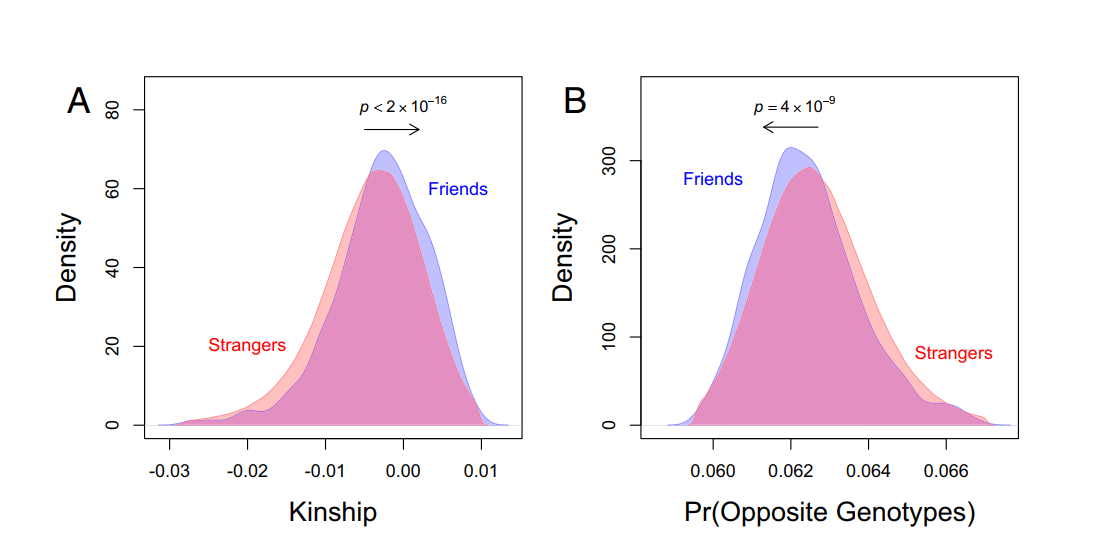In the journey of life, we will meet a lot of people, but few of them can really become close friends who keep in touch all the time. Have you ever had the experience of meeting someone for the first time and having endless conversations with them, as if you've known them for years? You may have very different life experiences, but you can resonate with each other at a certain moment, as if you have found a long-lost confidant.
This wonderful feeling makes us wonder: how do good friends come about? How do we find those who can become an important role in our lives in a sea of people?
Scientific research has revealed a surprising answer for us: good friends are not only resonance in the heart, but also may be the genetic level of selection.

A team of researchers from Yale University and the University of California published a fascinating study in the Proceedings of the National Academy of Sciences (PNAS) that delves into the differences in genetic similarity between friends and strangers. They concluded that the level of genetic similarity between friends was surprisingly comparable to distant relatives up to four generations removed! In addition, the study uncovered some interesting genetic properties: some specific sets of genes showed significant homogeneity (e.g., genes related to the sense of smell), while others showed significant heterogeneity (e.g., genes related to the immune system).
You and your best friend have 1% similar genes
The researchers exhaustively analyzed a total of 1.5 million genetic variants provided by 1,932 participants who were not related to each other or to their spouses. The only difference between these participants was their social relationships.
During the survey, each participant was asked to identify his or her closest friends. Based on this information, the researchers paired 1,932 participants into groups of friends and strangers, and then compared the differences in genetic similarity between the two groups.

Figure 1: Friends show higher homogeneity than strangers in genome-wide measures
Results
Significantly higher genetic similarity: the study found that friends were significantly more genetically similar to each other than to strangers. On average, 1% of genes were the same between friends, a degree of similarity equivalent to that of distant relatives within four generations.
Strict control of variables: in order to rule out possible bias due to people who tend to befriend distant relatives, the researchers used only 907 pairs of friends with a kinship of ≤0 for further validation. Even with this strict control, there were still many more outliers in the friends group than in the strangers group.
Positive and negative genetic correlations: both positive (i.e., genetic similarity) and negative (i.e., genetic dissimilarity) correlations were higher among friends than strangers across the genome. This further suggests that significant genetic similarity does exist between friends.

Figure 2: Friends exhibit higher homogeneity and heterogeneity than strangers in genome-wide association studies (GWAS)
Conclusion
The study concludes that genetic similarity among friends is not solely due to a common ancestral background, but that a variety of factors, such as active selection of friends or the environment, may also combine to contribute to this phenomenon. The presence of genetic correlations on individual fitness, the synergistic advantages that can arise from genotypic similarity between friends, and the complementary nature of different genotypes in some respects are significant for biological and social processes. In particular, the homogeneity of the olfactory system among friends reflects its possible role in friendship formation, and the heterogeneity of the immune system implies the existence of complementary strategies in immune function among friends. In addition, the human social environment is a key force in evolution, and genetic interactions with friends may influence the fitness advantage of one's own genes, ultimately having an impact on the rate and outcome of evolution.








Post comments